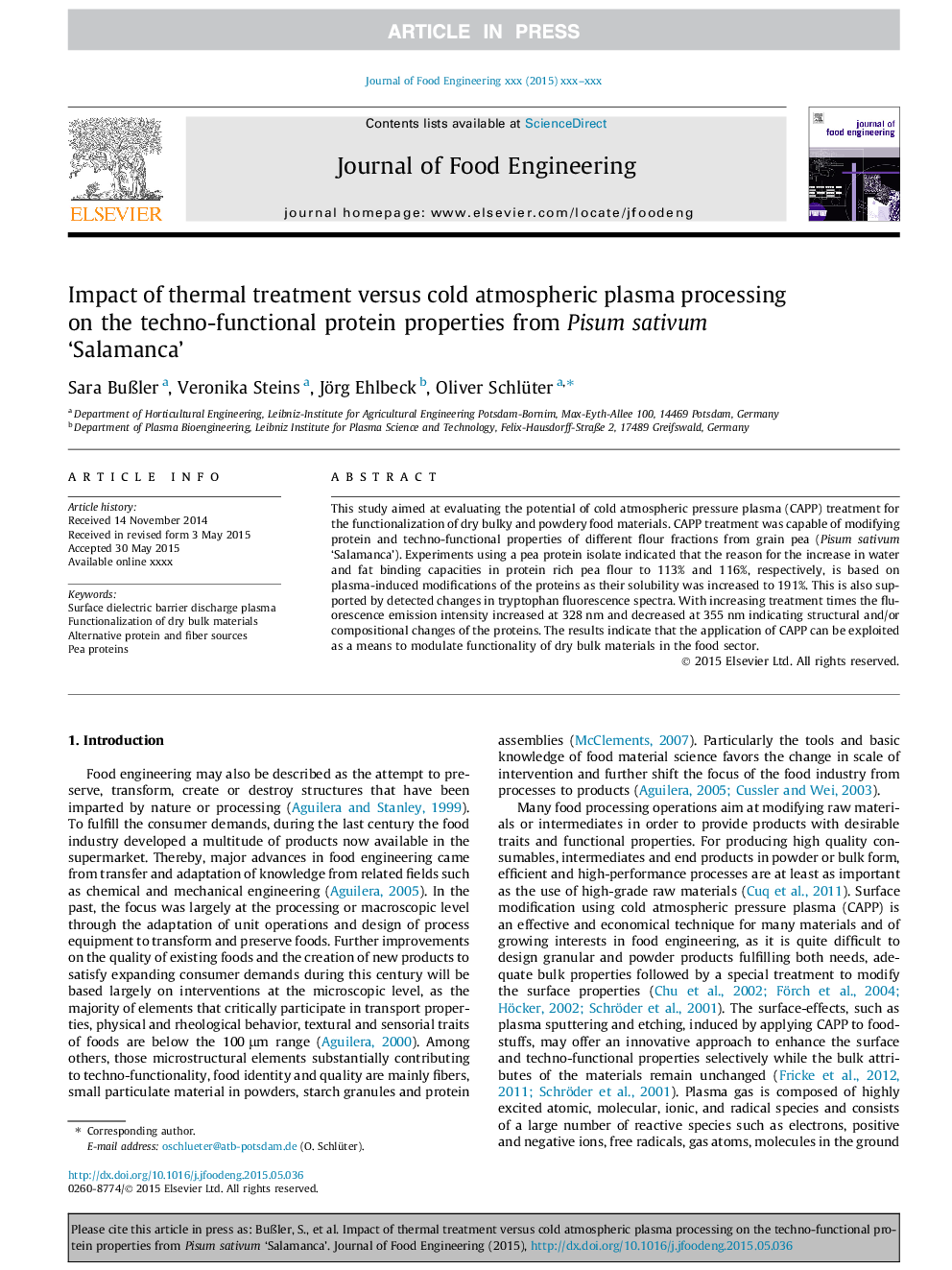| Article ID | Journal | Published Year | Pages | File Type |
|---|---|---|---|---|
| 10277245 | Journal of Food Engineering | 2015 | 9 Pages |
Abstract
This study aimed at evaluating the potential of cold atmospheric pressure plasma (CAPP) treatment for the functionalization of dry bulky and powdery food materials. CAPP treatment was capable of modifying protein and techno-functional properties of different flour fractions from grain pea (Pisum sativum 'Salamanca'). Experiments using a pea protein isolate indicated that the reason for the increase in water and fat binding capacities in protein rich pea flour to 113% and 116%, respectively, is based on plasma-induced modifications of the proteins as their solubility was increased to 191%. This is also supported by detected changes in tryptophan fluorescence spectra. With increasing treatment times the fluorescence emission intensity increased at 328Â nm and decreased at 355Â nm indicating structural and/or compositional changes of the proteins. The results indicate that the application of CAPP can be exploited as a means to modulate functionality of dry bulk materials in the food sector.
Keywords
Related Topics
Physical Sciences and Engineering
Chemical Engineering
Chemical Engineering (General)
Authors
Sara BuÃler, Veronika Steins, Jörg Ehlbeck, Oliver Schlüter,
